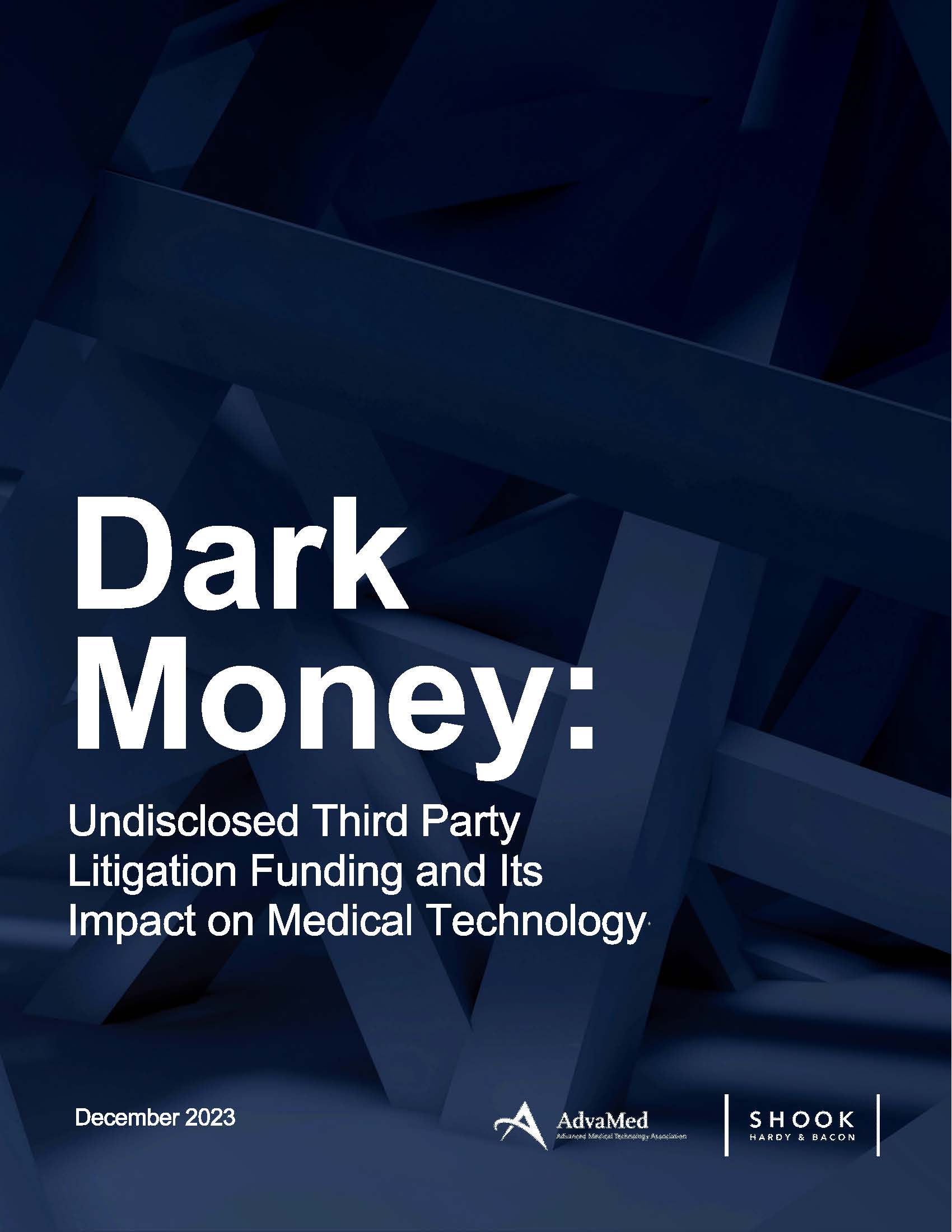Dark Money: Undisclosed Third Party Litigation Funding and Its Impact on Medical Technology

Third party litigation funding has become widespread in the civil justice system. The growing use of TPLF to generate mass tort litigation, particularly against manufacturers of medical technology, misuses the civil justice system, adversely affects public health, chills innovation, and harms patients.
Related Reading
Resource / Digital Health / Legal
AdvaMed Response to House Privacy Working Group RFI
May 30, 2025
AdvaMed calls for federal privacy laws that reflect how medical devices use patient data differently from consumer health tools.
Resource / Legal
AdvaMed® Medical Device Mass Tort TV Ad Trend – Q1 2025
May 13, 2025
Resource / Emerging Policy Response Resources / Government & Legislative Affairs / Legal
AdvaMed Comments to OMB Deregulation RFI
May 12, 2025
A powerful op-ed from AdvaMed’s CEO explaining why tariffs could undermine U.S. medtech innovation, jobs, and patient care—and what must be done.
Event / Code of Ethics / Legal
MedTech Compliance Bootcamp
September 16, 2025 | 8:00 AM – 6:30 PM
September 17, 2025 | 8:00 AM – 2:00 PM
Join AdvaMed & Porzio for this comprehensive compliance bootcamp to better understand the current medtech compliance framework.
Event / Compliance / Global & Trade / Legal
U.S. National Security & Business: Navigating Sanctions, Export Controls, CFIUS, and Outbound Investment Under the Trump Administration
June 25, 2025
1:00 PM – 2:00 PM
Akin will provide a CLE program covering the latest legal issues for inbound trade and investment, including the Trump Administration’s approach to trade policy and tariff issues, and strategies medical technology companies can employ to assess and mitigate legal risk. Attendees are eligible to receive 1.0 CLE.
Resource / Coverage & Payment / Diagnostics / Global & Trade / Government & Legislative Affairs / Health Equity / Legal / Regulatory Affairs / Small Business
The Medical Innovation Agenda for the 119th Congress
March 13, 2025
AdvaMed®’s medtech priorities for the 119th Congress highlight opportunities to address the most important issues facing patients and the medical technology industry today.
Blog / Amicus Briefs / Legal
Smith v. Terumo BCT (Colorado Court of Appeals) March 6, 2025
March 6, 2025
AdvaMed® filed an amicus brief in the case of Smith v. Terumo BCT, Inc. The case concerns whether the court should create a cause of action for asymptomatic plaintiffs, permitting recovery based solely on the possibility of future injury.
Event / Global & Trade / Legal
Navigating Inbound Trade & Investment: Strategies for Medtech in the Era of Tariffs & Trade Legal and Policy Shifts
March 19, 2025: 1:00pm – 2:00pm ET
Akin will provide a CLE program covering the latest legal issues for inbound trade and investment, including the Trump Administration’s approach to trade policy and tariff issues, and strategies medical technology companies can employ to assess and mitigate legal risk. Attendees are eligible to receive 1.0 CLE.